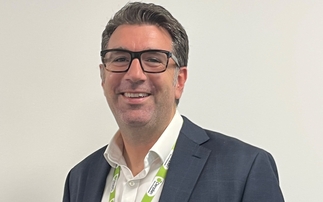Healthcare cash plans are steadily gaining recognition as an employee benefit, but consumer education will be key if providers wish to be in with a sporting chance. Peter Carvill explains. Click here to download pdf
As the world begins to heat up in anticipation of the Beijing 2008 Olympic Games, it is an interesting exercise to compare insurance products to athletic events. If income protection and critical illness are glamorous showpiece events such as the 100m sprint or the 200m hurdles, then healthcare cash plans are similar to the marathon – they run along nicely at a measured pace, performing steadily but lacking the whizz-bang thrill of its counterparts in the protection market.
Philip Blackburn, senior economist at Laing and Buisson, explains that there has been no significant alterations in the way the market has been operating, and this can be seen in the little change experienced year-on-year. "Demand for cash plans, in terms of volumes, remained more or less unchanged in 2006, following a small fall in 2005. Spending growth, as shown by contribution income, has slowed since average cash plan price increases have been only inflationary. So, in real terms, spending has remained static. Overall, the market is constant but robust," he says.
This is borne out by Laing and Buisson's market report, Health and Care Cover 2007. The number of contributors for cash plans decreased in 2005, but the fall of 60,000 from 2005 was just a 10th of the drop from 2004 to 2005. In addition, the average cost per contributor, after rising heavily between 1999 and 2003, slowed between 2004 and 2006 to reflect the rate of inflation.
External forces
If the market has doggedly remained the same, it is because there have been few dramatic changes for those selling healthcare cash plans. However, there have been subtle shifts in the playing field caused by external forces. "It's an evolving market," says Jill Davies, deputy chief executive of Westfield Health. "The entire health market is changing due to external forces such as dentists and the GP contract, in addition to the NHS' service delivery. There are many changes, and insurance is usually there to fill in the gaps."
Peter Lauris, sales and marketing director for Medicash, points out that some providers have been engaging in the all-out price war that has been characteristic of the rest of the protection market. "The cost of providing cover has been an issue, and some people have been dumbing down in price and benefit levels as a result of that. Others have been carving out a niche market, and that obviously comes at a premium price," he says.
Significant improvement
There was some intimation from industry experts that, after a sustained period of no apparent growth, the cash plan market is now looking to begin a process of significant improvement, as public confidence in the capabilities of the NHS has been eroded.
"The market hasn't done much in the past couple of years but there are signs it is ready for growth now," says Richard Halley, director of business-to-business sales at HSA. "We are seeing increased demand from the corporate sector, with companies looking for alternatives to current arrangements or to introduce some sort of healthcare cover for employees."
Halley is also keen to point out that the rising costs of cash plan premiums was a reflection in the improvement of the policies, and not an attempt to wring as much revenue as possible from an unaltering market. He says the 40% increase in the cost of contributions is due to the fact that not only is the quality of cover increasing, but so is the cost of supplying it.
He adds: "In the corporate market, cash plans are picking up on occupational health and advice. Not only are costs rising, but the breadth of cover is also increasing."
There was great belief in the potential of the healthcare cash plan market. Most significantly, many in the industry referred to how it could be offered as an employee benefit and function as a cheaper alternative to private medical insurance (PMI).
Davies explains: "Health is fundamentally a key part of our ability to work and play. Cash plans often get confused with PMI, but we're
n cont. p.42
about health maintenance and maintaining good health. It's a different market."
Davies is correct in that cash plan policies deal solely with helping to maintain health. For a premium of around £150 to £160 a year, a customer will receive help towards the everyday cost of healthcare. Plans differ but the average policy will cover for numerous scenarios, including partial or full reimbursements for dental and optical costs, annual health screenings, alternative and complementary therapies, cash benefits for hospital stays and NHS prescription costs.
Educating consumers
Davies adds that there is an opportunity to grow the market if providers are willing to go further in educating consumers. "The public are now more tuned into the worries of getting a dentist. While people understand the products, the market is misunderstood – but once they have a cash plan, we tend to keep them for a long time and they tend to not let it go because they realise it's useful. You're bound to make a claim at the dentist or optician every year or two," she says.
Davies also believes that cash plans for employees, while incurring extra expense for an employer, can benefit the workplace: "It manages risk and it shows that the employer cares for their staff, giving added value to the terms and benefits by providing money to employees to spend on their health."
However, according to those in the market, education remains the key to improving any uptake of the product. If potential customers do not know the benefits of a product, it is unlikely they will purchase cover – and a cash plan policy is a good product for employers. As Davies says, the majority of the population will need to claim on healthcare expenses throughout the year, whether it is for prescriptions, spectacles or even dental care. For individuals and families unable or reluctant to opt into PMI, the cheaper option of a healthcare cash plan may be more viable.
Consequently, Halley believes that information is the way forward, and that prospective customers should be fully informed of the benefits of what they are buying. He says that providers should also be reaching out to intermediaries: "It's education right across the board. These products are not widely known, and we find that people can see the value but aren't sure of what healthcare cash plans are or what is available in the market."
Lauris agrees: "It is all down to education. The question is, do people know what cash plans are? People who have little or no knowledge of what they are believe that they are too good to be true. We need to educate the public on the features and benefits of them, such as optical and dental care, as they can reveal early indicators of medical conditions as people progress through life."
Changing nature
Overall, there is a feeling of optimism within and about the sector. The changing nature of the working environment and the relationships between employer and employee mean that those seeking a job will expect more from their prospective employers. As such, cash plans are perfectly designed for this situation. Halley, for one, believes he can see positive signs indicating possible growth, and it is a view shared by others such as Davies.
She says: "It's a great market to be in – it is very lively and we are bullish about the future. If companies understand what customers need and want, then they're going to have a successful business." n











